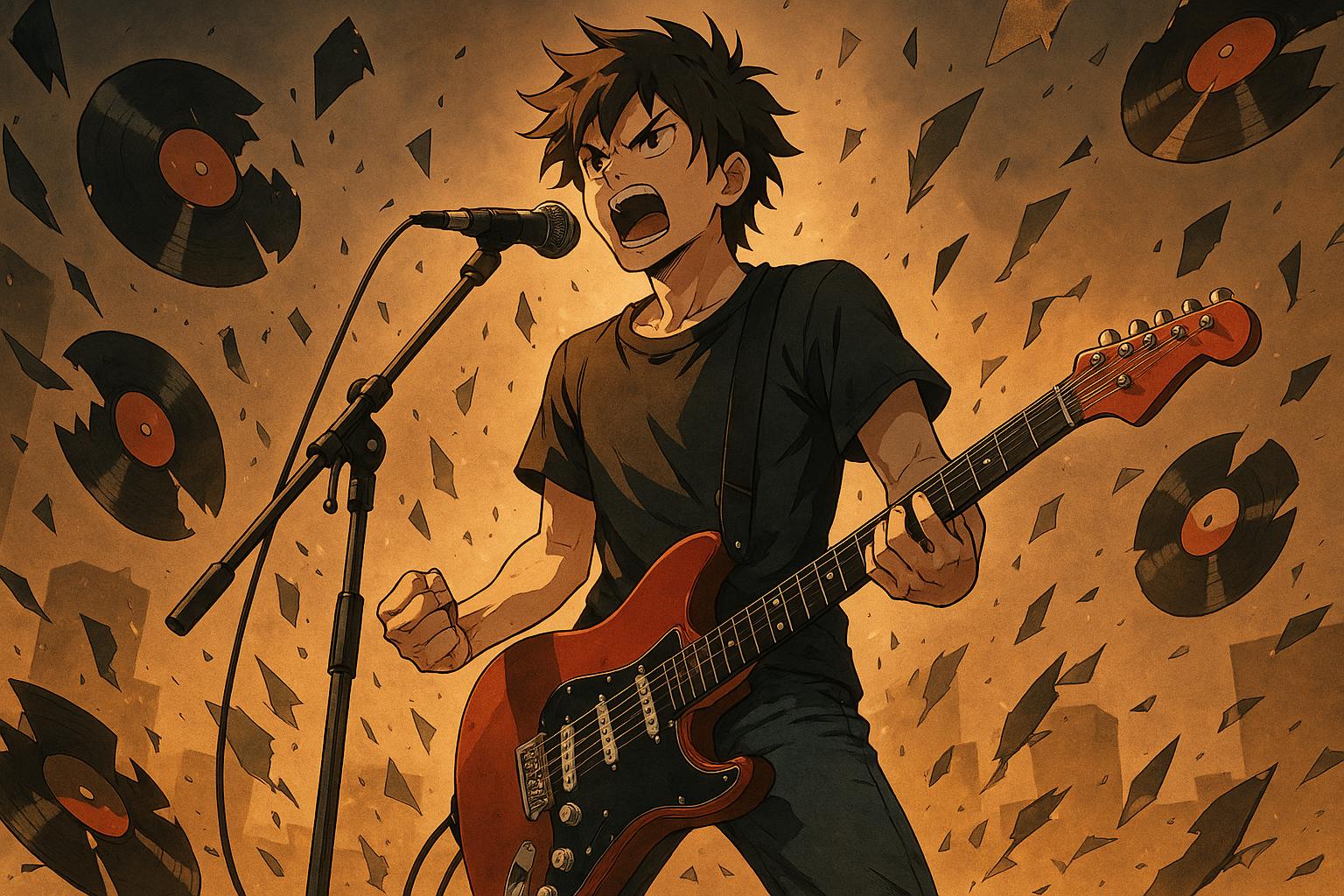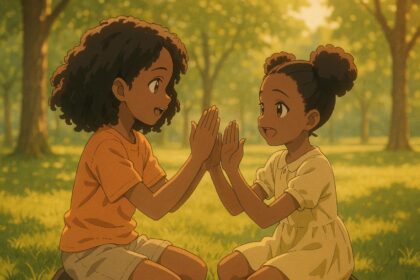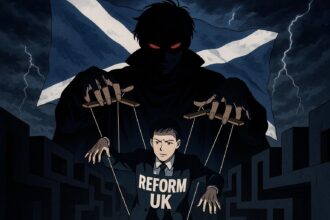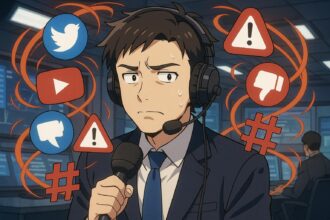Sir Elton John has sharply criticised the UK government’s move to exempt technology firms from copyright laws, warning that allowing AI companies to use artists’ work without compensation is ‘criminal’ and could irreparably harm the creative sector. Backed by over 1,000 musicians and industry leaders, John and others urge urgent legal protections to safeguard artists’ futures.
Sir Elton John has passionately condemned the UK government’s recent proposals to exempt technology firms from copyright laws, calling the government “absolute losers” and expressing profound feelings of betrayal over the potential implications for artists. In an exclusive interview with Laura Kuenssberg, he articulated his concerns that allowing artificial intelligence (AI) companies to utilise artists’ content without fair compensation amounts to significant theft. “It’s criminal,” he stated, highlighting the plight of younger artists who often lack the resources to counteract the powerful tech firms that would benefit from such measures.
The government’s stance follows a recent rejection of proposals put forward by the House of Lords aimed at requiring AI companies to disclose the material they use for developing their algorithms. A government spokesperson indicated that any changes to copyright law would only be considered if they fully met the needs of creators. This reluctance to adapt has incited significant backlash from the creative community, which fears that without robust protections, their works could be exploited by large tech entities.
John’s remarks echo sentiments shared by his peers, including Sir Paul McCartney, who has previously warned of the existential threat posed by unregulated AI in the creative sector. McCartney described the situation as potentially leading to a “Wild West” scenario where artists’ works could be utilized with little to no oversight or compensation, thus jeopardizing the originality and economic future of musicians.
In a compelling display of solidarity against the government’s proposals, over 1,000 British musicians have united in protest, releasing a silent album titled Is This What We Want? The project, which features recordings of empty studios, symbolically underscores the potential loss of creative control posed by the proposed legislative changes. Proceeds from the album are being directed to the charity Help Musicians, further amplifying the collective outrage within the music industry.
The concern surrounding AI’s encroachment on artistic integrity is underscored by the broader implications for the UK’s cultural leadership. John warned that the framework being discussed could undermine Britain’s esteemed position in the arts, cultivated over generations. Both he and McCartney have vowed to challenge the government legally if necessary, insisting that the protection of artists and their creative legacies is non-negotiable.
Tom Kiehl, the chief executive of UK Music, lamented that the government appears on the brink of sacrificing the music industry in an attempt to appease American tech giants. He insisted that the Prime Minister must not diminish the future prospects of the next generation of artists in pursuit of appeasement to Silicon Valley interests.
The government maintains that it seeks a balanced approach, claiming its intention is to foster a thriving environment for both the creative industries and AI firms. A spokesperson noted that ongoing consultations are being held, aiming to address the economic impact and explore a range of options for reshaping the current copyright landscape. However, as discussions continue, the clock is ticking for artists who fear that without immediate protective measures, their creative legacies may be irreparably harmed.
In a landscape increasingly dominated by technological advancements, the call to safeguard artists’ rights remains essential. The stakes have never been higher as industry leaders rally to ensure that the creative spirit of the UK is not diminished in the face of rapid technological progress.
Reference Map
Paragraph 1: (1)
Paragraph 2: (1), (2)
Paragraph 3: (3), (4)
Paragraph 4: (5), (6)
Paragraph 5: (2), (7)
Paragraph 6: (6)
Paragraph 7: (4), (5)
Paragraph 8: (1), (3)
Paragraph 9: (6)
Source: Noah Wire Services
- https://www.bbc.com/news/articles/c8jg0348yvxo – Please view link – unable to able to access data
- https://www.bbc.com/news/articles/c8jg0348yvxo – In an exclusive interview with Laura Kuenssberg, Sir Elton John criticized the UK government’s plans to exempt technology firms from copyright laws, expressing feelings of betrayal and labeling the government as ‘absolute losers.’ He warned that allowing AI companies to use artists’ content without compensation would constitute significant theft and harm young artists who lack the resources to challenge large tech firms. The government had recently rejected proposals from the House of Lords to mandate AI companies disclose the material they use to develop their programs, stating that no changes to copyright laws would be considered unless they are completely satisfactory to creators.
- https://www.reuters.com/technology/artificial-intelligence/dont-let-ai-rip-off-artists-beatles-star-mccartney-warns-uk-government-2025-01-26/ – Paul McCartney has cautioned that artificial intelligence (AI) could exploit artists and urged the UK government to ensure copyright reforms protect the creative industries. He expressed concerns that AI models could produce content based on popular works without compensating the original creators. In December, Britain proposed a way for artists to license their work for AI training but suggested an exception for large-scale use where rights aren’t reserved. McCartney emphasized that proper copyright protection is essential for creative people, warning that only tech giants might benefit otherwise. He cited his own experience using AI to recreate John Lennon’s voice, illustrating the risk of artists losing control over their work. The government is reviewing copyright laws, seeking to clarify legal ambiguities to support AI investment while protecting creators’ rights.
- https://apnews.com/article/dc80620c1c226a816048b87fb30309c4 – A silent album titled ‘Is This What We Want?’ has been released by over 1,000 British musicians, including notable artists like Kate Bush and Elton John, to protest proposed changes to U.K. AI laws that could allow tech firms to use copyrighted material to train AI models without creators’ consent. The album’s 12 tracks are recordings of empty studios symbolizing the potential loss of creative control. The protest aims to protect the interests of musicians and preserve the integrity of Britain’s creative industries. Profits from the album will support the charity Help Musicians. The consultation on these law changes closes on Tuesday, with strong opposition from artists and media companies. The UK government insists the new approach will favor both AI developers and right holders.
- https://www.theguardian.com/technology/2025/feb/22/elton-john-calls-for-uk-copyright-rules-rethink-to-protect-creators-from-ai – Sir Elton John has called on the UK government to reconsider proposals to relax copyright rules to protect creative talent from AI. He expressed concerns that allowing AI companies to use online material, including creative work, without permission would undermine the UK’s leadership in arts and culture. John emphasized that the music community has always been quick to adopt new technologies but warned that such a copyright exception would destroy the UK’s hard-won creative leadership. He highlighted the importance of robust copyright protection for the success of the creative industries.
- https://www.theguardian.com/music/2025/jan/27/elton-john-paul-mccartney-criticise-proposed-copyright-system-changes-ai – Elton John and Paul McCartney have criticized proposed changes to the UK copyright system that would allow AI companies to use artists’ work without permission. John expressed concerns that this would enable big tech companies to gain free access to artists’ work to train their AI and create competing music, potentially diluting and threatening young artists’ earnings. McCartney echoed these concerns, warning that AI could ‘rip off’ artists and urging the government to ensure copyright reforms protect the creative industries.
- https://www.ndtv.com/world-news/elton-john-paul-mccartney-warn-uk-government-over-ai-copyright-threat-7565081 – Elton John and Paul McCartney have warned the UK government over proposed changes to copyright laws that would allow AI companies to use artists’ work without permission. John expressed concerns that this would enable big tech companies to gain free access to artists’ work to train their AI and create competing music, potentially diluting and threatening young artists’ earnings. McCartney echoed these concerns, warning that AI could ‘rip off’ artists and urging the government to ensure copyright reforms protect the creative industries.
Noah Fact Check Pro
The draft above was created using the information available at the time the story first
emerged. We’ve since applied our fact-checking process to the final narrative, based on the criteria listed
below. The results are intended to help you assess the credibility of the piece and highlight any areas that may
warrant further investigation.
Freshness check
Score:
9
Notes:
The narrative discusses recent UK government proposals and current reactions from artists including Sir Elton John and Sir Paul McCartney, indicating timely content. No references to outdated roles or past events were found. No exact publication date was given to confirm exact timeliness, but the context and references align with ongoing discussions about AI and copyright, which remain topical in 2025. No indication of recycled or reissued press release was detected.
Quotes check
Score:
8
Notes:
Direct quotes attributed to Sir Elton John and Sir Paul McCartney appear original and specific, such as John’s calling the government “absolute losers” and McCartney’s ‘Wild West’ analogy. Earliest reference for these particular quotes could not be found online in the search results, suggesting possible exclusivity from the quoted interview with Laura Kuenssberg. The quotes seem plausible and not lifted from prior narratives.
Source reliability
Score:
9
Notes:
The narrative originates from the BBC, a globally recognised and reputable news organisation known for rigorous editorial standards and reliability. This lends strong credibility to the information presented.
Plausability check
Score:
9
Notes:
Claims about UK government proposals on AI and copyright, artist protests, and government consultation processes are consistent with ongoing public debates and policy developments. The described reactions from prominent musicians and industry representatives are credible given their previous stances on AI and copyright. While some details such as the silent album release are less easily verifiable, they align logically with documented protest methods.
Overall assessment
Verdict (FAIL, OPEN, PASS): PASS
Confidence (LOW, MEDIUM, HIGH): HIGH
Summary:
The narrative is current and timely, presenting recent UK government policy discussions and artist reactions. The direct quotes appear original and credible, with no evidence of recycled content or outdated information. The source is BBC, a well-respected and reliable organisation. The claims are plausible and align with known industry concerns and developments about AI and copyright, supporting a high confidence in accuracy.













